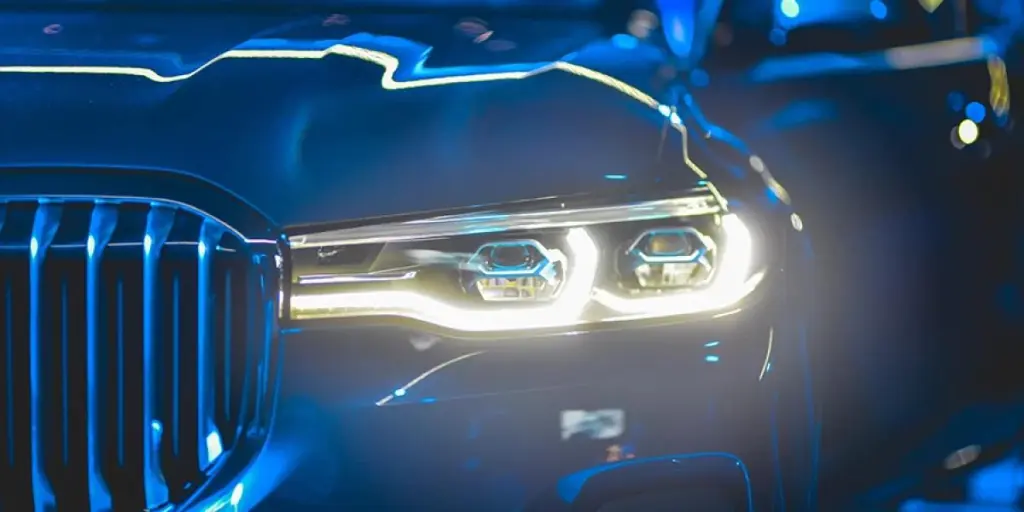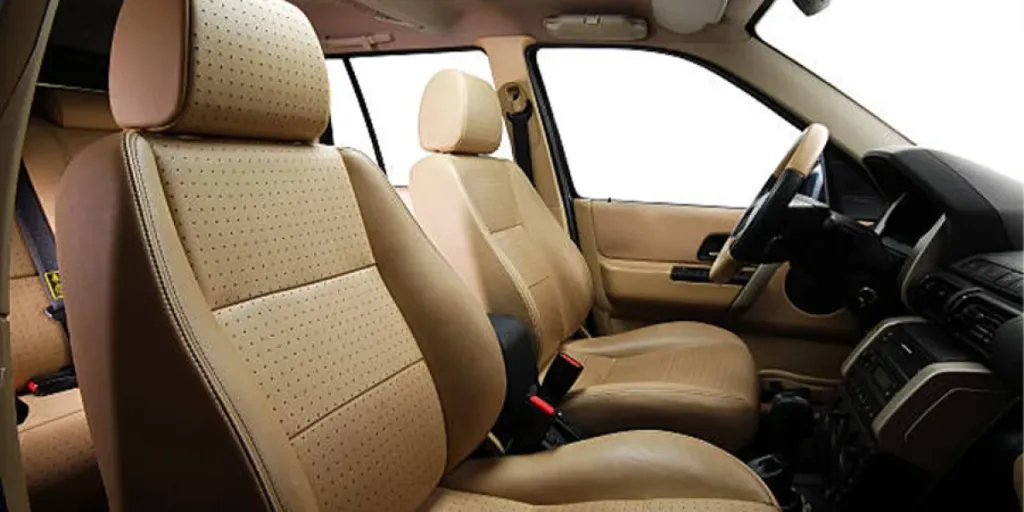If you have a Land Rover, whether Defender Family, Discovery, or Range Rover, you probably considered it due to its reputation for mechanical reliability.
As its manufacturing evolves and becomes more complex due to the inclusion of luxury features in the face of rugged terrain, several common failures have emerged.
Most common Land Rover problems include electrical issues, oil leaks, air suspension issues, airbag malfunctions, parking brake failure, and steering shaft problems across models and years.
Table of Contents
Land Rover popularity and trends
6 common problems with Land Rovers
Conclusion
Land Rover popularity and trends
Land Rover is a British luxury SUV brand that has existed since 1948. Over the years, Land Rover has built a reputation for producing rugged, off-road-capable vehicles that can also provide a comfortable driving experience on the road.
In recent years, Land Rover has focused on producing more luxury-oriented vehicles. These vehicles offer high-end amenities and features that appeal to a wider range of customers.
Land Rovers are known for their exceptional off-road capability. This has made them popular with outdoor enthusiasts, off-road adventurers, and people who live in rural areas where rough terrain is common.
6 common problems with Land Rovers
1. Air suspension issues
Air suspension issues are common with Land Rovers and can frustrate owners. Land Rovers are notorious for various air suspension issues such as:
- Air leaks: One of the most common air suspension issues is air leaks due to worn or damaged air springs, faulty airlines, or loose fittings. Air leaks can cause the suspension to fail to raise or lower properly or cause the vehicle to sit lower than normal.
- Compressor failure: The air suspension compressor pumps air into the suspension system. When the compressor fails, the suspension may not be able to raise or lower properly, and the vehicle may ride rougher than normal.
- Suspension warning light: If the air suspension system detects a fault, it may trigger a warning light on the dashboard. This warning light can indicate various issues, from air leaks to electrical faults.
2. Electrical issues
There have been reports of electrical issues in Land Rovers, which can cause problems such as malfunctioning electronics, warning lights, and electrical fires. Some common electrical issues in Land Rovers are:
- Battery drain: Some Land Rovers have a high parasitic drain on the battery, which can cause the battery to go flat if the vehicle is not used for a few days.
- Faulty alternator: A faulty alternator can cause the battery not to charge properly, resulting in a dead battery and other electrical issues.
- Central locking system malfunction: Land Rovers have a central locking system that can malfunction due to wiring problems, faulty switches, or damaged actuators.
- ABS system failure: The ABS in Land Rovers can fail due to faulty sensors, damaged wiring, or a faulty control module.
3. Oil leaks
Oil leaks are a common problem in Land Rovers, particularly in older models. There are several potential causes of oil leaks, including worn or damaged gaskets, seals, or O-rings, as well as cracked or corroded engine components.
The oil leaks in Land Rovers occur in valve cover gaskets, oil pan gaskets, rear main seal, timing cover gaskets, and camshaft seals. Additionally, the crankshaft position sensor O-ring and the oil cooler lines can also be sources of leaks.
It’s important to address oil leaks in Land Rovers as soon as possible, as they can lead to further engine damage and potentially expensive repairs. Regular maintenance and inspections can help prevent oil leaks from occurring, and prompt repairs can help mitigate any damage that does occur.
4. Airbag malfunctions

Airbag malfunctions can occur in any vehicle, including Land Rovers. The causes of airbag malfunctions in Land Rovers can be similar to those in other vehicles. They may include a sensor, electrical, mechanical, maintenance, design, or manufacturing defects.
In some Land Rover models, there have been reported issues with the airbag system. For example, in some Range Rover and Range Rover Sport models manufactured between 2010 and 2012, the front passenger airbag may not deploy correctly due to a fault in the occupant classification system.
Land Rover may also issue recalls or service bulletins for known airbag issues, so it’s essential to stay informed about any updates from the manufacturer.
5. Parking brake failure
Parking brake failure in Land Rovers, although modern models are being redesigned in response to the issues. The failure of parking brakes is due to several factors:
- Worn or damaged brake components: Over time, the brake pads, shoes, or rotors can become worn or damaged, reducing the effectiveness of the parking brake due to Land Rover use in rougher terrains.
- Malfunctioning cables: The parking brake system uses cables to activate the brakes. The parking brake will not engage properly if these cables become corroded or damaged due to off-road driving.
- Faulty brake calipers: The brake calipers are responsible for applying pressure to the brake pads or shoes. If the calipers are worn or damaged, they may not be able to apply enough pressure to hold the vehicle in place.
To prevent parking brake failure in your Land Rover, it is essential to have your brakes inspected regularly by a qualified mechanic. If you notice any signs of brake trouble, such as unusual noises or reduced braking performance, have your vehicle serviced immediately.
6. Steering shaft problems
Land Rovers are notorious for steering shaft problems, particularly in older models. The most common steering shaft problems are:
- Loose steering: This can be caused by worn or damaged universal joints in the steering column or a loose steering box.
- Excessive play: Excessive play in the steering can be caused by worn or damaged bearings, steering shafts, or steering box components.
- Vibration: Vibration in the steering wheel can be caused by several factors, including worn or damaged suspension components, unbalanced wheels, or steering shafts.
- Steering lock: Occurs when the steering wheel locks in place and cannot be turned. A malfunctioning ignition lock or a faulty steering column can cause it.
If you are experiencing any of these problems with your Land Rover, it is important to have it inspected and repaired by a qualified mechanic. Steering problems can be dangerous and result in losing control of the vehicle.
Conclusion
Land Rovers experience most of the common problems experienced in the article. However, they remain a vehicle of choice due to their mechanical reliability to millions of users worldwide. The problems are easy to spot through warning alerts and unusual sounds.
Visit a qualified mechanic for a repair when you spot problems to avoid accidents and injuries.




